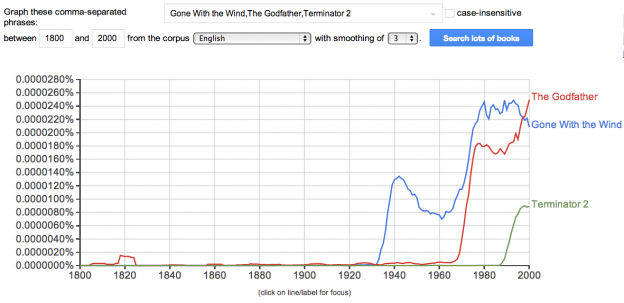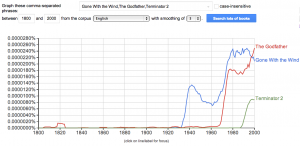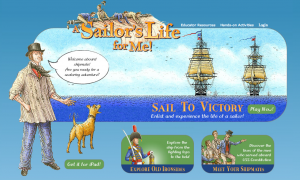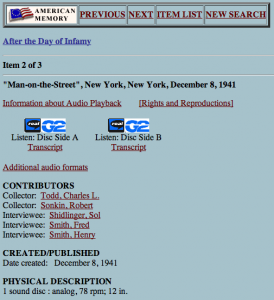The experiments I did with Voyant and Google Ngram both offered me a substantial amount of insight into the writing trends of authors. I personally found Google Ngram to be more helpful than Voyant, although they both have a lot to offer. Voyant displays the most common words in a body of text you submit, which mainly helped me to understand a given author’s focus and objective in writing a document. For instance, when I put in an article about Hitler’s Nuremberg rallies, one of the most common words was “Facist,” which indicates to me that one of the author’s main goals in writing the article was to explain what a large impact Hitler’s Facist ideologies played in his frenzied speeches given during this period. Beyond this however, there wasn’t a huge amount more to be gained from Voyant.
On the other hand, Google Ngram allowed me to investigate the commonality of certain terms in google’s corpus of books and other documents. When I compared the key-terms Gone With the Wind, The Godfather, and Terminator 2, focusing on the year 2000, I was able to discern the following: In the year 2000, The Godfather was mentioned the most, followed closely by Gone with the Wind, and in a distant 3rd place was Terminator 2. This indicates to me how these three films stand in terms of their prominence in modern writing, and ultimately how valuable they are considered in terms of pop-culture.
While both of these tools are very helpful, I believe Google Ngram has more info to offer someone from a research standpoint.



